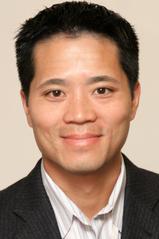Save the date – 17th Annual Laura B. Flawn, MD Endowed Professorship in Diseases of the Spine and Spine Trauma
Event Date & Time
September 16, 2019Location
Grand Rounds in MED 409L @7am - 8am/ Resident Case Presentations in MED 409L @ 8am - 9:45amEvent Details:
Visiting Professor, Dr. Wellington Hsu

About the Speaker(s)
Focus of Work
Bio
The focus of my research efforts centered on the effect of bone graft substitutes in pre-clinical animal models. Our publications looked at the effects of viral-mediated gene therapy, bone morphogenetic protein (BMP), adipose-derived stem cells, and demineralized bone matrix in a variety of rodent bone healing models in the extremity and spine. Furthermore, our research group studied the effects of novel imaging to track in vivo bone formation and metabolic activity.
My current focus of resea...[Read full text]The focus of my research efforts centered on the effect of bone graft substitutes in pre-clinical animal models. Our publications looked at the effects of viral-mediated gene therapy, bone morphogenetic protein (BMP), adipose-derived stem cells, and demineralized bone matrix in a variety of rodent bone healing models in the extremity and spine. Furthermore, our research group studied the effects of novel imaging to track in vivo bone formation and metabolic activity.
My current focus of research is aligned with my research partner and wife, Dr. Erin Hsu, who is a Research Assistant Professor at Northwestern University. Our work investigates the role of the Aryl Hydrocarbon Receptor (Ahr) with a focus on gene and protein expression changes and downstream effects after activation by xenobiotics such as dioxin and its role on osteogenic differentiation and bone healing. This has led to publications suggesting that the mechanism in which smoking increases the risk of fracture nonunion is mediated by Ahr ligands and not nicotine. Another arm of our research aims to develop and evaluate novel technologies involving both nanomaterials and 3D-printing methodologies to ultimately produce a universally safe and effective bone graft substitute for use in humans. I serve as PI or Co-Investigator on all of these studies.
Source-https://www.feinberg.northwestern.edu/faculty-profiles/az/profile.html?xid=17834
